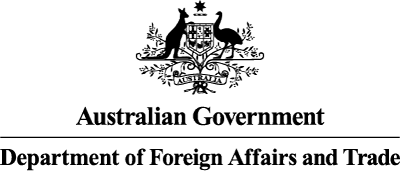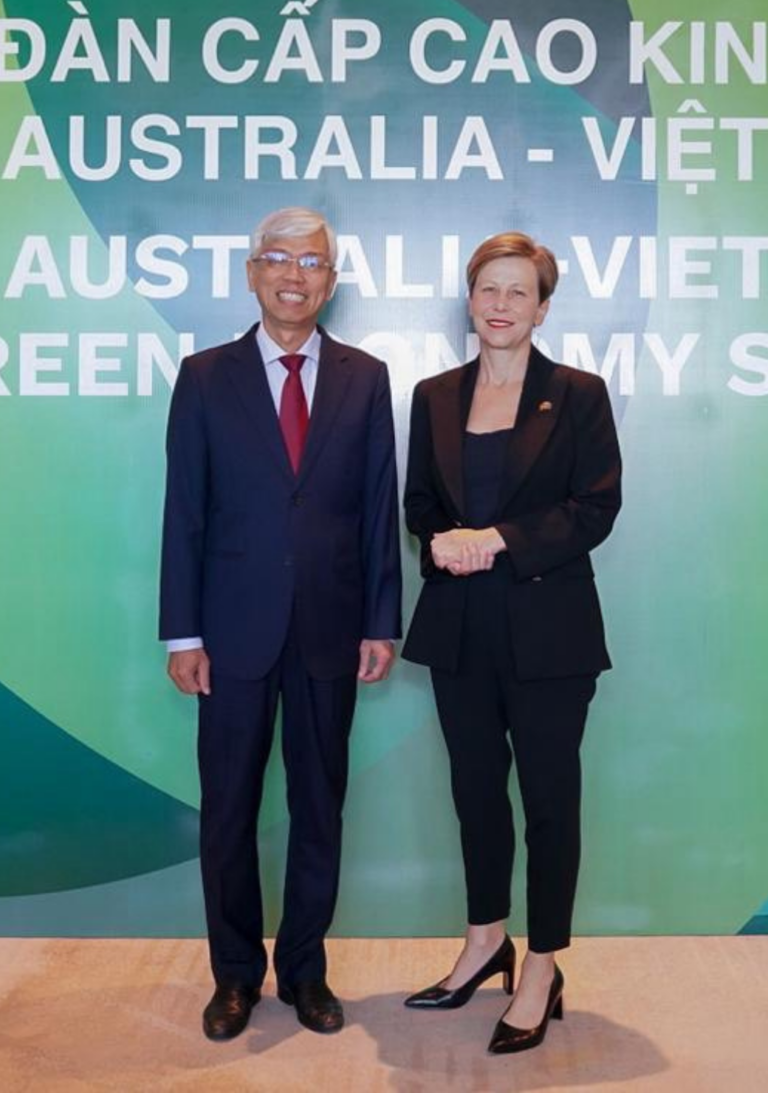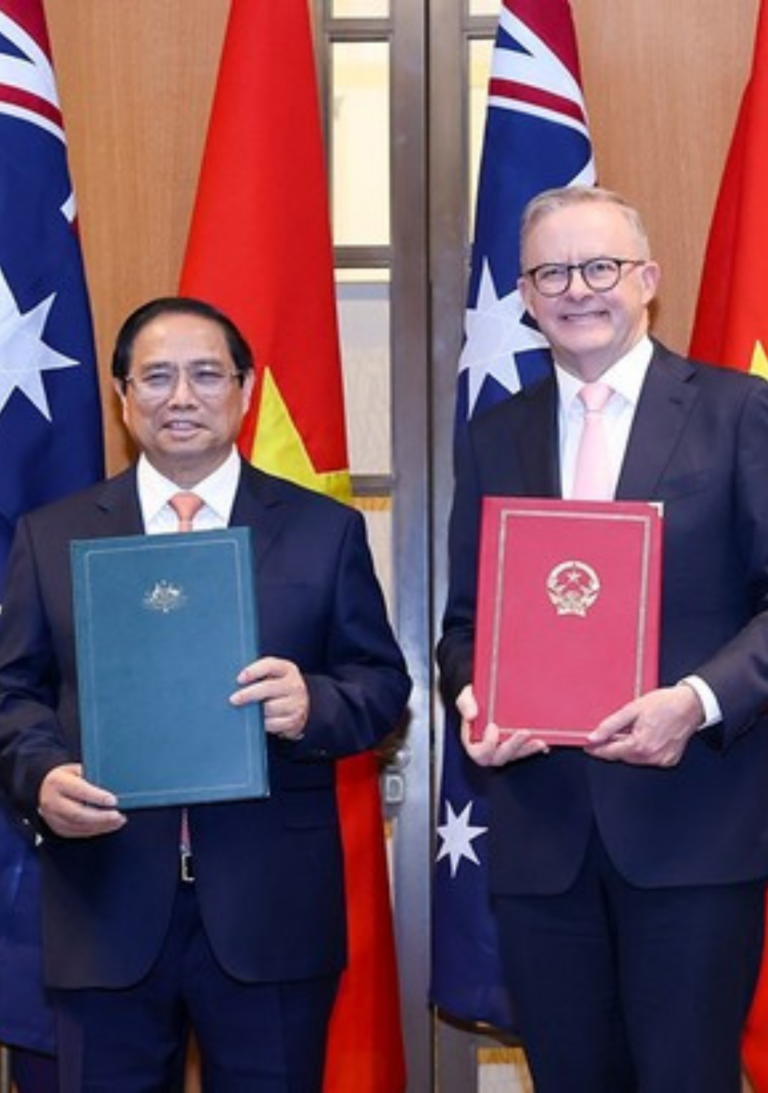Vietnam has experienced rapid urbanisation in the past three decades. While urbanisation has supported economic growth, challenges have also arisen, such as infrastructure capacity limits and environmental degradation
In February 2023, a delegation from RMIT’s School of Global, Urban and Social Studies visited Vietnam. During their visit, members of the delegation connected with external partners on joint research possibilities and built collaborative links with researchers at RMIT Vietnam with the goal of understanding current urban challenges and opportunities.
Following on from these consultations, in May 2023 the Australia Vietnam Policy Institute (AVPI) and RMIT University co-hosted a Smart and Sustainable Cities workshop. The roundtable brought together researchers from RMIT Australia and RMIT Vietnam, and representatives from the Department of Foreign Trade and Affairs (DFAT), the Aurecon Group, the Asia Foundation, and UN-Habitat.
Discussions were held around current trends, challenges as well as key issues and emerging themes for smart and sustainable cities in Vietnam, with the aim to identify future directions for joint Australia-Vietnam collaborative partnerships.
The term ‘smart city’ was first mentioned in Vietnam in the national policy in 2016. Issued in 2018 by the Prime Minister, Decision No. 950 is a key document outlining the national vision for smart sustainable cities. It also established a target to transform the four largest cities in Vietnam, namely Hanoi, Ho Chi Minh City, Da Nang, and Can Tho, into smart cities by 2025 or 2030
This policy brief has been released by the AVPI to provide an insight into the discussions that were held, following up on key themes of rapid urbanisation, UN sustainable development goals, and exploring smart and sustainable cities. Understanding the potential linkages between smart and sustainable cities policies and programs in Vietnam and ongoing efforts in Australia holds significant value.
Key takeaways
- Establishing Vietnam-specific standards and indicators for sustainable and smart cities is essential. The development of these guidelines will assist in achieving practical, efficient, and contextually appropriate investments that align with the capital balance and conditions of each locality.
- Gaining an understanding of the benefits and impact of current smart and sustainable city initiatives is key for future development. To understand the impact of smart and sustainable city initiatives to date and their contribution to responding to urbanisation challenges and climate change risks, it would be valuable to undertake an evaluation of recent progress in Vietnam.
- There is a need for a closer connection between smart and sustainable city initiatives, climate change responses and metropolitan and national urban policy. A well-defined legal framework is also important to building trust in smart city technologies.
- While industry-led smart city initiatives will still play an important role in Vietnam, improved government competence and a strategic vision will provide a clearer framework for their development and implementation.
- Bilateral university and research initiatives could assist in building capacity for future smart and sustainable city programs. This can involve collaboration between Vietnamese and Australian institutions on joint research and capability development initiatives, exploring opportunities for undergraduate and postgraduate engagement and the development of a higher degree research training program.

















